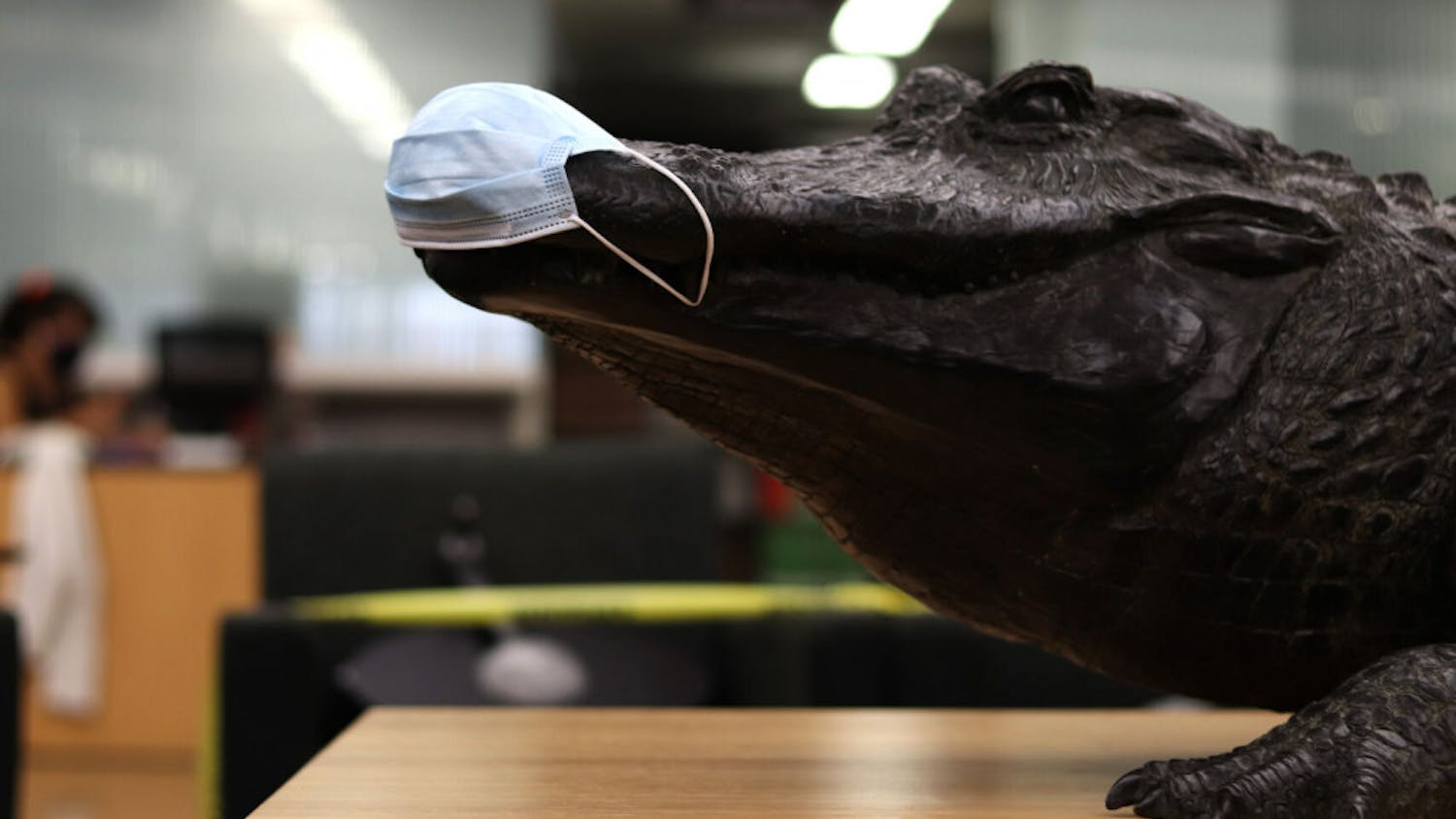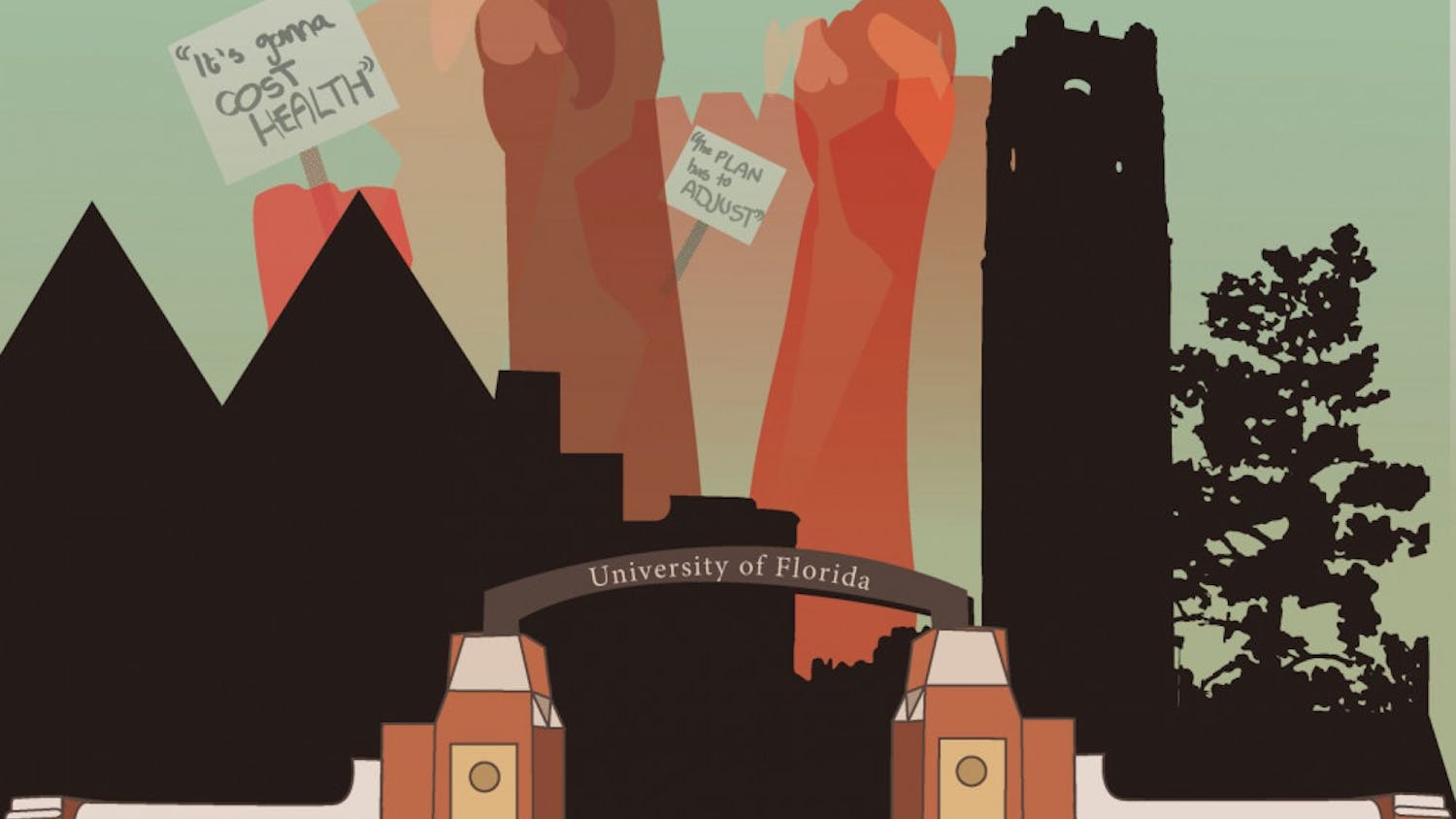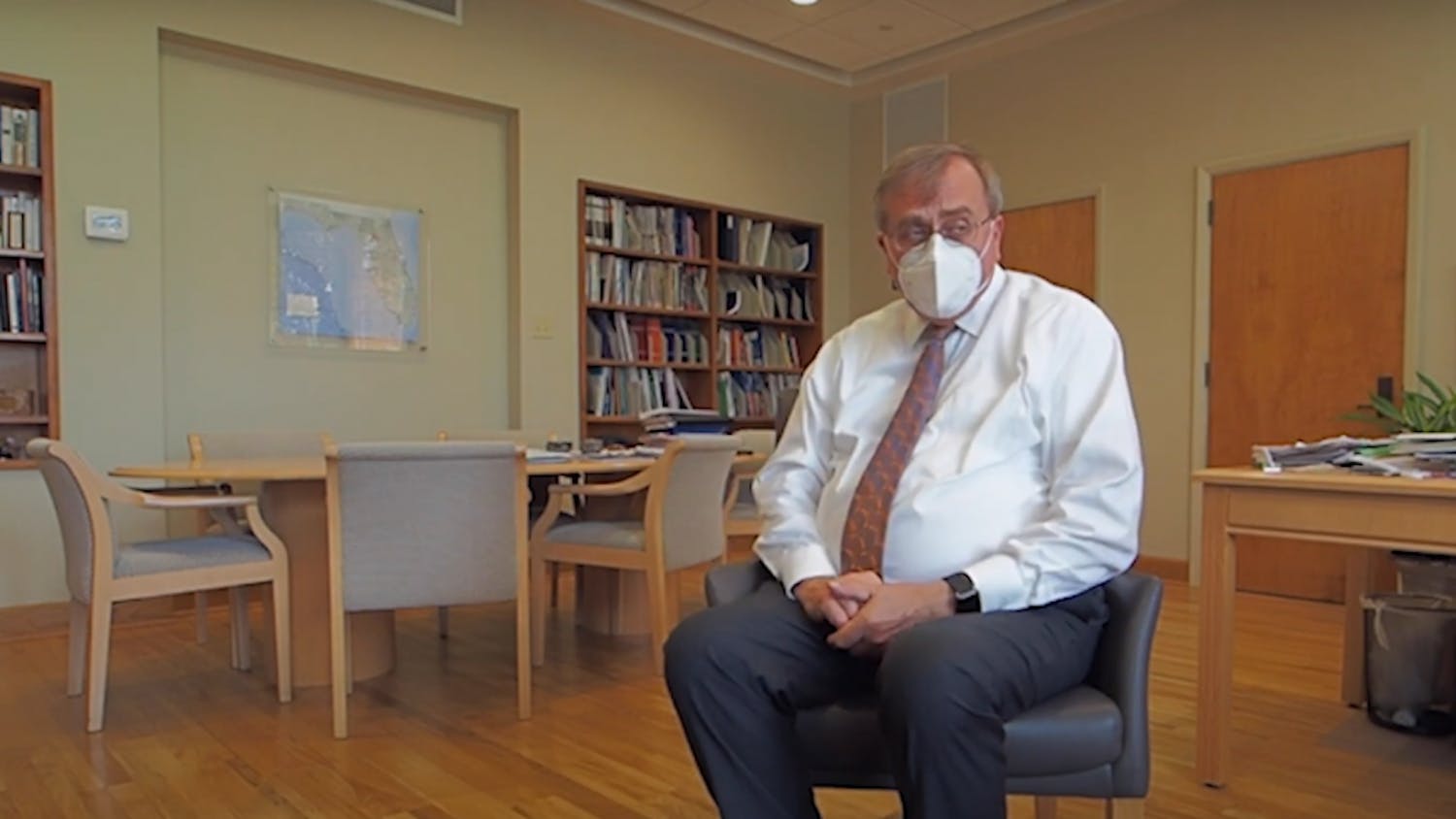
UF’s administrators outlined a post-COVID-19 future featuring vaccines and more than 8,000 in-person classes.
The first of a two-day UF Board of Trustees meeting Thursday, the board’s first in person since June, was dominated by timetables for COVID-19 vaccines, the specifics of mandatory testing and what UF will look like as students return to campus.
That includes up to 25,000 tests every two weeks for students taking in-person classes — almost 15,000 of them.
Dr. David Nelson, UF’s senior vice president for health affairs, said UF Health Jacksonville expects to get doses of the first COVID-19 vaccine candidate by late next week, though could not specify how many.
That is pending approval from the Food and Drug Administration, which is expected to vote on the Pfizer vaccine on Dec. 11, Nelson said.
If the vaccine is approved, Nelson said, UF Health will first offer the vaccine to healthcare workers who could be at risk, per recommendations from the Centers for Disease Control and Prevention. He said he expects that to be completed by mid-January, with other groups like high-risk individuals and healthy adults following soon after.
UF Health would be one of five hospital systems in Florida that will receive the vaccines, he said.
“The good news here is that vaccines are here,” Nelson said.
Dr. Michael Lauzardo, the deputy director of UF Health’s Emerging Pathogens Institute and the head of its Screen, Test, and Protect program,said UF plans on conducting up to 25,000 mandatory tests every two weeks, beginning the week of Jan. 4. He said he felt confident in that number after the program managed to conduct up to 2,600 tests per day in the Fall.
The tests will run for the first six weeks, at which point UF will evaluate whether they’re still needed if the positivity rate falls below 3%, he said.
Lauzardo said he can’t determine whether or not UF can mandate vaccines. Provost Joseph Glover said last month that UF could not, as that would have to come from the state.
“This is where we take the fight back to the virus,” Lauzardo said.
The meeting’s location, Emerson Alumni Hall, was a reflection of the everpresent pandemic despite the focus on the Spring. The meeting’s approximately 50 attendees were spaced apart across the ballroom, with two people at a table and all wearing masks.
At a large rectangle table, each of the board’s 13 members were separated by small plastic barriers dividing their individual spaces but not covering their face.
Still, that did not stop attendees and trustees from removing their masks as they spoke.
On campus, students will be expected to follow UF’s current behavioral expectations going into the Spring, D’Andra Mull, the Vice President for Student Affairs, said during the meeting. Those include mandatory masks and social distancing.
This Fall, three residence halls — Lakeside Building 2, Riker Hall and Trusler Hall — were used for quarantine and isolation spaces, with capacity never dipping below 80%, she said. East Hall is being added as a fourth quarantine hall next semester.
Despite that, students will not have any issues finding a dorm to live in next semester, Mull said.
Mull also announced plans to continue the distribution of Gator Care Kits, which included UF-branded cloth masks and sanitation materials, in the Spring. The Office of Student Affairs plans to give them to students who have not picked one up yet before making them available to all students.
More than 14,000 were distributed in the Fall, she said.
Provost Glover followed Mull with an outline on the number of in-person classes in the Spring. According to registration data, 8,112 in-person sections are offered next Spring, with about 14,500 undergraduate students registered for at least one in-person class, he said.
With the current undergraduate population at about 36,000, he said, that amounts to about 40% of undergraduates.
“I think that’s pretty good, quite honestly, given the constraints we’re operating under,” Glover said.
Hosseini asked Glover if UF would open more in-person seats if the Centers for Disease Control and Prevention changed its physical distancing guidelines from six feet to three feet. Glover responded that it was possible — only if UF Health officials recommended it.
The meeting also allowed other UF departments to highlight different announcements and metrics.
Joe Souza, UF’s director of Physical Security, announced during his presentation that UF will begin updating the Gator 1 ID cards for students, faculty and staff next semester. The administration will fund faculty cards while UF Business Services handles student cards.
The cards will be updated because the magnetic swipe functionality that cards currently use has become outdated, he said.
Zina Evans, UF’s Vice President of Enrollment, said that freshman applications for Fall 2021 have topped 48,000, up from 46,403 for this Fall. That was helped by the two-week extension to the application deadline, Evans said.
“The interest in the University of Florida is absolutely there, even in this challenging time,” she said.
Correction: This article has been updated to reflect that the Pfizer vaccine is pending approval from the Food and Drug Administration and to reflect the correct spelling of Trusler Hall.
Contact Corbin at cbolies@alligator.org . Follow him on Twitter @CorbinBolies.







